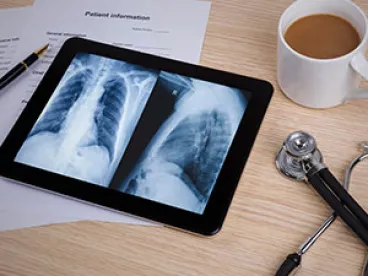The District of Columbia Department of Health recently issued proposed rules that, if enacted, would constitute the first regulations on telemedicine practice standards in the nation’s capital. Other than a 2014 policy statement, D.C.’s current laws are silent as to telemedicine practice. Like 29 other states, D.C. does have a law requiring commercial health insurance companies to cover telemedicine-based services.
The comment period for the proposed rules ends March 26. Interested telemedicine companies and health care providers should review these rules and consider contacting policymakers to make your voice heard regarding the practice standards. You can easily submit comments online at this link.
Here are 8 takeaways health care providers, hospitals, and start-up companies looking to enter the D.C. market should consider if the proposed rules are implemented without changes:
-
Telemedicine. The proposed rules define telemedicine as “the practice of medicine by a licensed practitioner to provide patient care, treatment or services, between a licensee in one location and a patient in another location with or without an intervening health care provider, through the use of health information and technology communications, subject to the existing standards of care and conduct.” Generally, telemedicine does not include an audio-only telephone conversations, electronic mail, instant messaging conversations, or facsimile communications. Telemedicine typically involves the application of secure videoconferencing or store and forward technology to provide or support the delivery of health care by replicating the interaction of a traditional encounter in person between a licensee and patient.
-
Physician Licensure. Physicians providing telemedicine to diagnose and treat patients located in D.C. must hold an active D.C. medical license. For any services rendered outside of D.C., the proposed rules require the physician providing the services to meet any licensure requirements in both the jurisdiction in which the physician is physically located and where the patient is physically located.
-
Valid Doctor-Patient Relationship. A physician must create a valid doctor-patient relationship and perform a patient evaluation to establish diagnoses and identify underlying conditions or contraindications to recommended treatment options before providing treatment or prescribing medication. However, an in-person exam is not required if the physician uses real-time auditory communications or a combination of real-time visual and auditory communications to allow a free exchange of protected health information between the patient and the physician performing the patient evaluation. A D.C. licensed physician may also rely on a patient evaluation performed by another D.C. licensed physician if the former is providing coverage for the latter.
-
Standard of Care. Under the rules, a physician using telemedicine is held to the same standard of care as when making medical decisions in an in-person encounter with a patient.
-
Remote Prescribing. The rules allow remote prescribing of medications without an in-person exam, provided the patient evaluation meets the guidelines and is within the standard of care.
-
Medical Records. The physician must create and maintain adequate medical records of the encounter. The physician must comply with D.C. and federal laws and regulations governing the confidentiality and disclosure of medical records. All relevant patient-physician email and other electronic communications must be stored and filed in the patient’s medical record.
-
Informed Consent. The rules require the physician to obtain and document patient consent to telemedicine-based services, except when providing interpretive services. Interpretive services means “official readings of images, tracings, or specimens through telemedicine” including “remote, real-time monitoring of a patient being cared for within a health care facility or home-based setting.” Patients must be informed of alternate forms of communication between the patient and the physician for urgent matters.
-
Secure and Confidential Patient Communications. Adequate security measures must be implemented to ensure all patient communications, recordings and records remain confidential. Specifically, the rules require telemedicine providers using e-mail for physician-patient communications to establish policies and procedures that address the following: (a) confidentiality and integrity of patient-identifiable information; (b) responsibilities of all personnel who will process messages; (c) hours of operation and availability; (d) types of permitted electronic transactions; (e) patient information required to be included in the communication; (f) archival and retrieval of patient records; and (g) quality oversight mechanisms. Patients must be informed of alternate forms of communication between the patient and physician for urgent matters.





 />i
/>i

